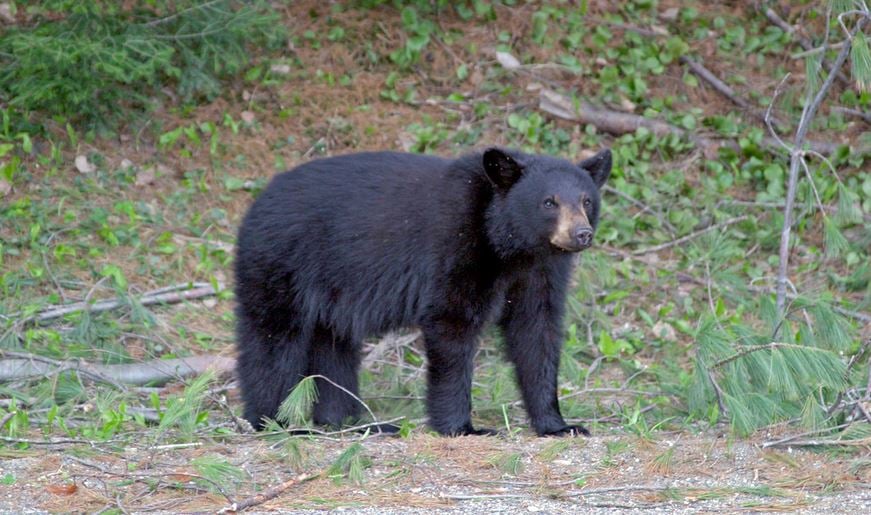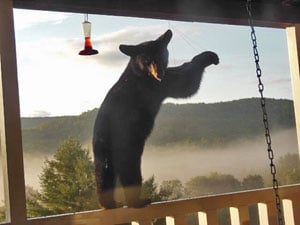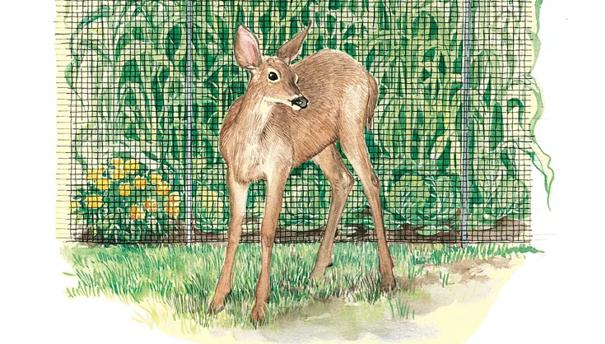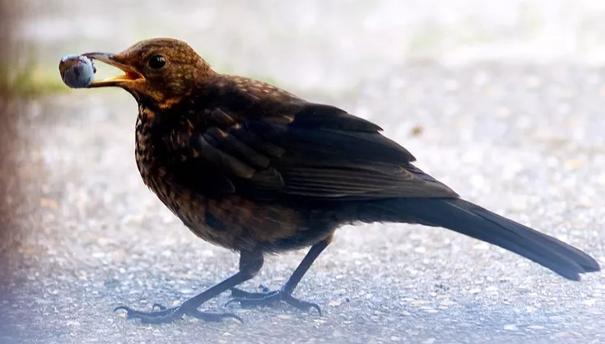Deterring Bears on Your Property
 Maine Black Bear Photo: U.S. Fish & Wildlilfe Service
Maine Black Bear Photo: U.S. Fish & Wildlilfe ServiceIn bear country, these large mammals can cause extensive damage to gardens and landscapes in search of food. Generally found in rural, forested habitat, these intelligent, curious and adaptable creatures are being seen more frequently in residential areas throughout the country. This may be due to increases in both human and bear populations as well as habitat fragmentation. In addition, disruptions in bears' natural food sources, such as scarcity caused by drought, may cause bears to wander into suburban landscapes in search of food.
 An unwelcome visitor: This bear returned several times after finding a birdfeeder filled with seed.
An unwelcome visitor: This bear returned several times after finding a birdfeeder filled with seed.Bears will munch berries, sweet corn and melon plantings and will destroy beehives to reach the honey. They tend to feed at dawn and dusk and can do a remarkable amount of damage in a short time. They also pose a danger to people and pets.
People often inadvertently lure bears into their landscapes with food or just the scent of food. Garbage cans, compost piles, birdfeeders, barbecue grills, campfires and pet food dishes are irresistible to hungry bears, and once a bear finds a food source it will return again and again, looking for more food. Sadly, a bear that becomes accustomed to human habitats may be hit by a car, or it may be labeled a "nuisance" and subsequently relocated or destroyed. It's in everyone's best interest - including the bears' - to discourage human/bear interactions and keep bears in their wild habitat.
Prevention and Control
- Feed birds only when bears are in hibernation, usually from December to March. Birdseed and suet are both highly attractive to bears. Placing feeders out of reach does not solve the problem, as bears have a keen sense of smell, and they will return again and again and go to extraordinary lengths to try to reach the nutrient-dense food in the feeders.
- Feed pets and store pet food indoors.
- Clean up all food scraps after picnics and outdoor parties.
- Harvest fruits frequently and pick up fallen fruit.
- Store garbage cans and recycling bins in the garage or another secure place ? simply keeping them covered isn't enough.
- Store barbecue grills in a protected location and clean them frequently.
- Keep compost piles and bins away from the house and don't add fish, meat, fat, oils, un-rinsed eggshells or any cooked food to compost.
- Keep chickens in a secure building at night.
- Use motion detectors that trigger loud music or flashing lights to scare bears off.
- Electric fencing can help discourage bears, though a very hungry bear may plow through despite shocks.
- Check with your state's wildlife agency for more information about bears in your region.
Last updated: 03/11/2024
Print this Article:
Related Articles
Get the Dirt
Stay up to date on new articles and advice. Please fill out the information below.



